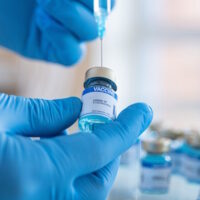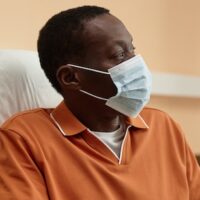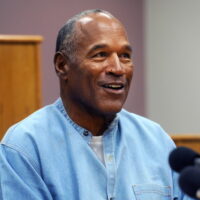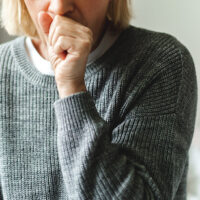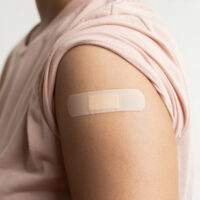It has not been shown that COVID-19 vaccines cause or accelerate cancer. Yet opponents of the vaccines say a new review article “has found that COVID-19 mRNA vaccines could aid cancer development.” The review conclusions are mainly based on the misinterpretation of a study on mRNA cancer vaccines in mice.
Issues: coronavirus
Q&A on Reducing COVID-19 Risk for Elderly, Immunocompromised
While the risks associated with COVID-19 generally have decreased over time due to prior exposure to the vaccines and the virus, some people remain at elevated risk, such as the elderly and immunocompromised. The updated COVID-19 vaccines and, in some cases, a new monoclonal antibody can provide increased protection for this group.
O.J. Simpson Died from Cancer, Not COVID-19 Vaccine
O.J. Simpson, a football star who was acquitted in the murder of his ex-wife and her friend, died of cancer on April 10 at age 76. Misinformation spread online within hours of the news. Social media posts falsely claimed that the cancer was related to his COVID-19 vaccination. Simpson was vaccinated, but there is no evidence that vaccination causes cancer or that it was to blame for his death.
Post Misrepresents Which Administration Sent Stimulus Checks to Dead People
Early in the COVID-19 pandemic, some stimulus checks were sent to people who had died. The issue was explained in government reports and the media when it happened in 2020. But a social media post has resurrected the issue and falsely claimed that it occurred during the Biden administration. It actually happened during the Trump administration.
Explaining the New CDC Guidance on What To Do if You Have COVID-19
Q: Is one day isolation sufficient to stop forward transmission of COVID-19?
A: People with COVID-19 could potentially transmit it to others well beyond a day after developing symptoms or testing positive. New guidance from the CDC advises people to isolate until they have been fever-free and with symptoms improving for at least 24 hours, and then take precautions for five days, which covers the period when “most people are still infectious.”
Study Largely Confirms Known, Rare COVID-19 Vaccine Side Effects
An international study of around 99 million people confirmed known serious side effects of COVID-19 vaccination. It also identified a possible relationship between the first dose of the Moderna vaccine and a small risk of a neurological condition. Social media posts about the study left out information on the vaccines’ benefits and the rarity of the side effects.
Posts Misrepresent Mouse Study of Pangolin Virus
A study showed a type of lab mouse is highly susceptible to a coronavirus derived from pangolins, a scaly, cat-sized mammal. This doesn’t mean the virus is dangerous to humans. The virus is related to the one that causes COVID-19 but did not descend from it, contrary to claims that it is a “mutant COVID-19 strain.” Nor did scientists “craft” the virus.
Viral Posts Misuse Rat Study to Make Unfounded Claims About COVID-19 Vaccines and Autism
COVID-19 vaccination during pregnancy benefits both mother and baby. Side effects are generally mild, and studies don’t show negative effects on the baby. A criticized study that gave COVID-19 vaccines to pregnant rats doesn’t show that vaccines cause autism or that people shouldn’t get COVID-19 vaccines, contrary to claims.
Tucker Carlson Video Spreads Falsehoods on COVID-19 Vaccines, WHO Accord
COVID-19 vaccines are generally safe and have not killed 17 million people worldwide, contrary to claims amplified by podcaster Bret Weinstein during an interview with Tucker Carlson. Weinstein also inaccurately characterized a proposed World Health Organization pandemic accord and other changes, claiming they aim to take away “personal and national sovereignty.”
